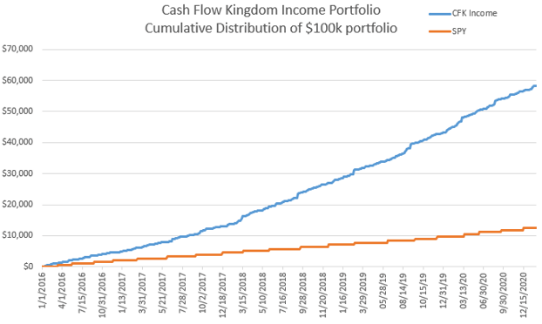Summary:
- Alphabet’s shares dropped over $100 billion after the DOJ’s move to force a Google Chrome divestment, but I believe the market overreacted.
- The DOJ claims Google Chrome’s market dominance is due to an illegal monopoly, but I find this reasoning unconvincing and unlikely to succeed.
- Even if a spin-off happens, it won’t significantly impact Alphabet’s revenue or shareholder value, as Chrome isn’t a major profit source.
- Alphabet remains a strong investment with a solid balance sheet, appealing growth, and a reasonable valuation, so I remain highly bullish.

Douglas Rissing/iStock via Getty Images
Article Thesis
Alphabet (NASDAQ:GOOG)(NASDAQ:GOOGL) has been the target of antitrust action repeatedly in the past. The latest move against the company comes from the Department of Justice, which wants to force Alphabet to divest its Google Chrome browser. Shares reacted negatively to this development, with Alphabet’s market capitalization dropping by more than $100 billion. While the DOJ move introduces some uncertainty, I believe that the market’s reaction to this development is overblown.
Past Coverage
I have written about Alphabet in the past here on Seeking Alpha, most recently in October, when I covered the company’s strong quarterly earnings results. I gave the company a “Strong Buy” rating back then, with shares being down by around 7% since then, mainly due to Thursday’s share price drop following the DOJ news.
What Happened?
The Department of Justice has decided that it wants to move against Alphabet. The most recent move is to try to force Alphabet to divest its Google Chrome browser. This was not entirely surprising, as speculation about such a move had risen in the recent past.
At the time of writing, Alphabet’s shares have declined by more than 5%, which means a market capitalization decline of a little more than $100 billion — which is a pretty hefty sum, all things considered.
What’s The Reasoning For The DoJ’s Plans?
The Department of Justice, led by Merrick B. Garland, wants to force Alphabet to spin off or otherwise divest Google Chrome, its web browser. The reasoning for that is that Alphabet’s web browser is highly successful, holding a market share of around 54% in the US, while second-placed Safari has a market share of around 33%. The Department of Justice believes that Google Chrome’s leading market share is the result of Alphabet operating an illegal monopoly. Seeking Alpha reported:
A late Wednesday filing confirmed the department was seeking the remedy after Google was found to have operated an illegal monopoly in search and search ads in a landmark antitrust trial.
I am by no means a lawyer, so this doesn’t mean a lot, but the reasoning is not too compelling to me. It is true that Alphabet has a high market share, but that holds true for many companies. Microsoft (MSFT) has a high market share with its operating system in the PC market, for example — in fact, a much higher one than Alphabet in the web browser space. Also, Alphabet didn’t force people to download or use its Chrome Browser. Instead, most PCs come with a pre-installed Internet Explorer (so one might be able to construct a case against MSFT for pre-installing that), but people are actively choosing to not use Microsoft’s Internet Explorer and to download a different web browser, such as Google Chrome, instead. Most consumers who use Apple’s Mac or MacBook use Apple’s Safari, and Mozilla’s Firefox has some market share as well (I used it in the past for a while). I personally do not see a problem in consumers’ decision to use Google Chrome if they like it better than Microsoft’s Internet Explorer, but it looks like the Department of Justice does see a problem here. I’d be very happy to hear from you whether you agree with what I think about this move or whether you see good reasons for a case against Alphabet!
What’s The Likelihood Of The DoJ Being Successful?
There have been regulators and politicians in the past who tried to move against big tech companies due to their (presumed) monopoly status. This has sometimes resulted in fines, but so far, the big tech companies have not gotten broken up. I believe Microsoft is one of the best examples of a high market share, as it has a huge market position in both operating systems with Windows and productivity software with its MS Office Suite. And even Microsoft has not gotten broken up — and I think that is a good thing, as Microsoft’s success with Windows or MS Office is not the result of anything illegal and since it doesn’t hurt consumers. With Alphabet having a lower market share in web browsers compared to Microsoft in the operating system space (73%), I think that the likelihood of a forced spin-off or divestment isn’t very high. It would not surprise me if Alphabet were to win such a case, with the arguments being centered around the fact that it does not control the entire market at all — there are several competitors with significant market share — and that it didn’t force anyone to use Google Chrome, as consumers themselves decided to do so.
Another important factor to consider is the recent election of President Donald Trump. He is generally seen as a more business-friendly, less-regulation type of president. Melissa Holyoak, for example, who may become the new FTC Chair under President Trump, is more pro-business, more pro-merger compared to the current FTC leader, Lina Khan. While it is not possible to predict what the future Donald Trump administration will do in this case, I believe that there is a solid chance that a Republican administration will be more lenient with large businesses and less eager to force spin-offs or block mergers.
Between the chance of Alphabet winning in court and the chance of the new administration putting an end to this move against Alphabet, I believe that there is a serious chance of Alphabet not being forced to divest Google Chrome. I would guesstimate that the likelihood of a forced spin-off or divestment is well below 50%.
What Would Be The Impact Of A Google Chrome Divestment?
While it is not possible to put an exact number on the impact of a forced Google Chrome spin-off, I believe that it is very safe to say that this wouldn’t be a company-threatening event at all.
Google Chrome is not a huge source of revenue or profit for Alphabet. Alphabet’s biggest profit machine is its Search business, with its cloud offering, YouTube, etc. being other major revenue and profit sources. I don’t see a meaningful connection between Google Chrome and either Alphabet’s cloud business or YouTube — both earn money completely independently from the browser that is being used. There is some connection between the search business and Google Chrome, but a minor one — Google Chrome has Google as the default search engine. But even if that was not the case, most Google Chrome users would likely use Google as their search engine, so I doubt Alphabet gets a big advantage out of Google Chrome.
If Alphabet wants traffic from non-Chrome browsers, it has to pay royalties in some cases (recorded as traffic acquisition costs in Alphabet’s statement of income). If Google Chrome was divested and turned into a separate company, Alphabet may have to pay royalties to that new company for bringing traffic to Google Search. But since current GOOG shareholders would be the owners of the hypothetical new company, they would basically pay themselves, so it doesn’t matter all that much, I believe. If, for example, Alphabet were to pay $1 million to the new Google Chrome spin-off, Alphabet’s costs would rise by $1 million and profit would decline by $1 million (ignoring taxes to keep things simple). But the same revenue would turn up at the Google Chrome spin-off, which would be owned by current Alphabet shareholders, and the profits derived from that would belong to current Alphabet shareholders as well after a spin-off.
So overall, I do not think that a forced spin-off of Google Chrome would be a disaster at all. Google Chrome is not generating a meaningful amount of revenue, and even if it was a valuable unit, GOOG shareholders would still own it after a spin-off – it wouldn’t disappear, after all.
Takeaway
This new move by the DoJ against Alphabet introduces uncertainties, and the market naturally doesn’t like that. That being said, I believe that there is a good chance of the DoJ failing in its attempt to force a spin-off, and even if the spin-off were to happen, I don’t think that a lot of shareholder value would be destroyed. The same could be said about a YouTube spin-off, for example — I would then be a shareholder of two separate companies that, combined, own the same units as Alphabet owns now. Some minor synergies might be lost and some extra regulatory costs would occur (e.g. due to two 10-Ks being filed, two IR teams being needed, and so on), but I don’t think that a market capitalization decline of more than $100 billion is warranted.
Alphabet remains a strong company with a fortress balance sheet, appealing growth, and an undemanding valuation — it trades at just 21x net profits — so I remain highly bullish.
Analyst’s Disclosure: I/we have a beneficial long position in the shares of GOOG either through stock ownership, options, or other derivatives. I wrote this article myself, and it expresses my own opinions. I am not receiving compensation for it (other than from Seeking Alpha). I have no business relationship with any company whose stock is mentioned in this article.
Seeking Alpha’s Disclosure: Past performance is no guarantee of future results. No recommendation or advice is being given as to whether any investment is suitable for a particular investor. Any views or opinions expressed above may not reflect those of Seeking Alpha as a whole. Seeking Alpha is not a licensed securities dealer, broker or US investment adviser or investment bank. Our analysts are third party authors that include both professional investors and individual investors who may not be licensed or certified by any institute or regulatory body.
Is This an Income Stream Which Induces Fear?
 The primary goal of the Cash Flow Kingdom Income Portfolio is to produce an overall yield in the 7% – 10% range. We accomplish this by combining several different income streams to form an attractive, steady portfolio payout. The portfolio’s price can fluctuate, but the income stream remains consistent. Start your free two-week trial today!
The primary goal of the Cash Flow Kingdom Income Portfolio is to produce an overall yield in the 7% – 10% range. We accomplish this by combining several different income streams to form an attractive, steady portfolio payout. The portfolio’s price can fluctuate, but the income stream remains consistent. Start your free two-week trial today!
